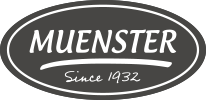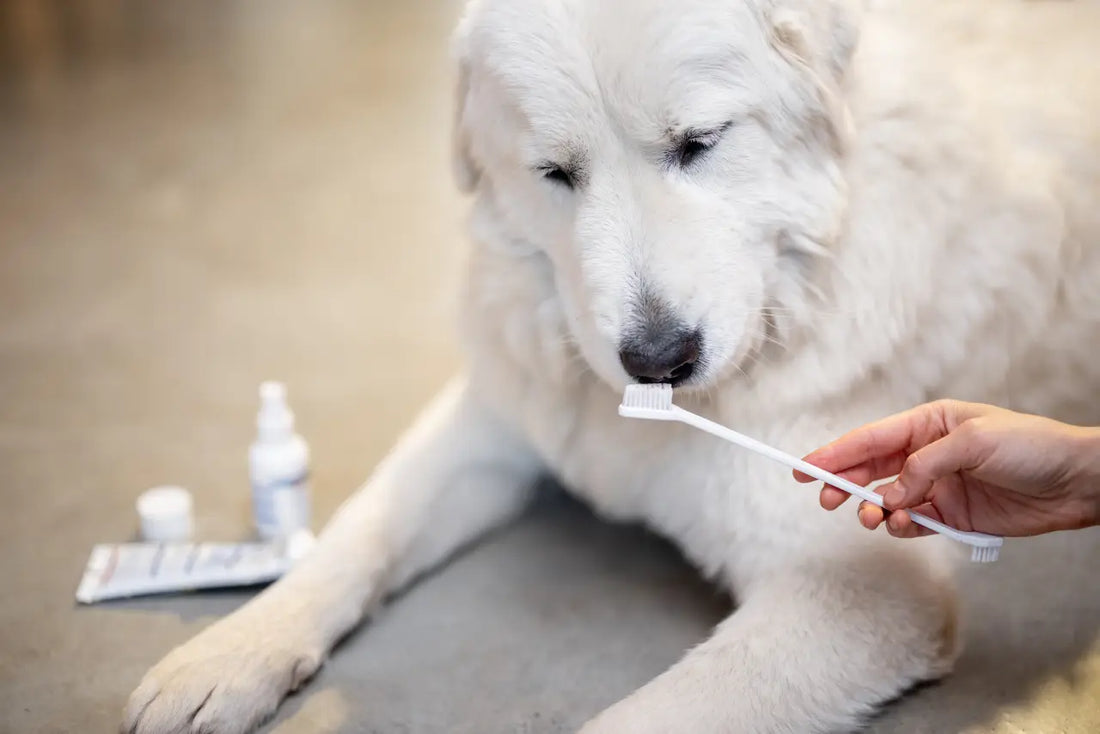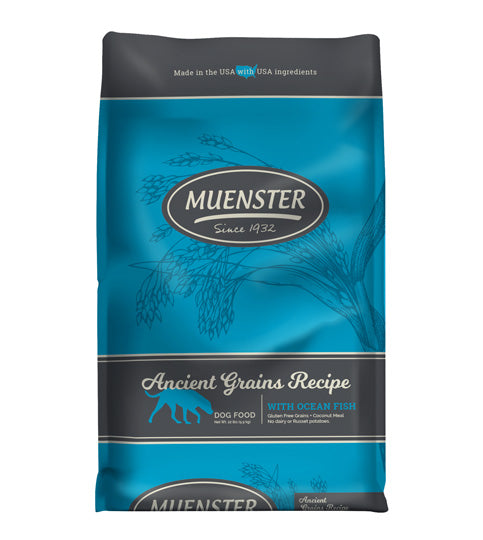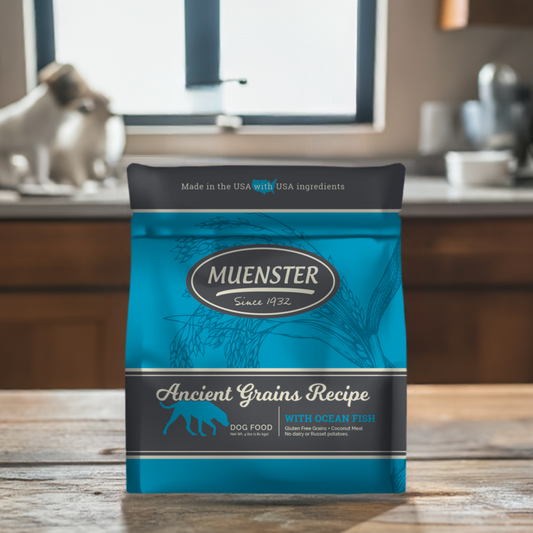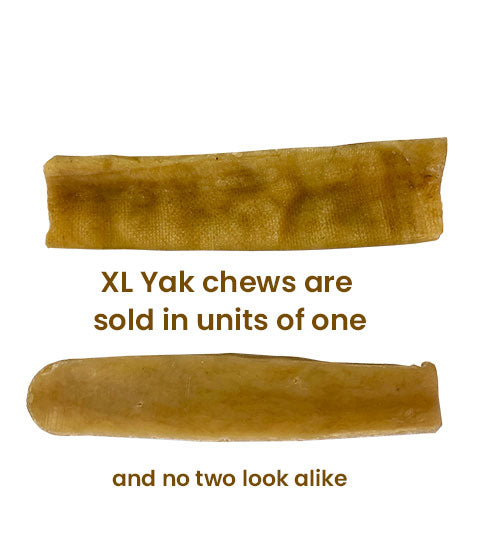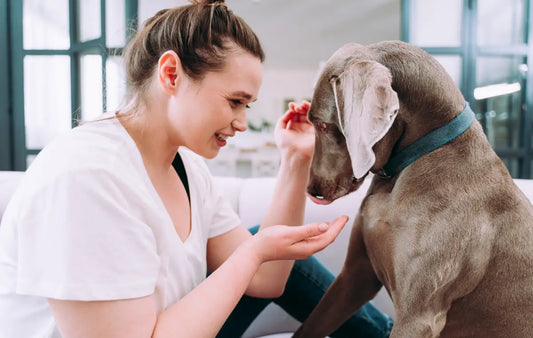Just as our dental health matters, so does that of our four-legged companions. As we celebrate Dental Health Month, the focus is not solely on humans but extends to our fur babies. Keep in mind that dogs, like us, are prone to a host of dental issues, if not given the right care. Did you know that dental disease is the most common health issue in dogs, affecting over 80% of dogs by the age of three. Unfortunately, like in humans, poor dental health can lead to serious heart, kidney and liver issues in dogs. This blog post aims to guide you by offering some insightful tips and strategies to maintain your dog's dental health.
Detecting Dental Problems: Signs You Shouldn't Ignore
When it comes to your canine companion's dental health, early detection of problems can be key to preventing serious issues down the line. While Small breed dogs are more prone to dental disease than larger breeds, dental health is critical for all ages and sizes of dogs. To detect dental problems, watch for these issues:
- Bad breath that persists beyond the occasional 'doggy breath'
- Noticeable changes in eating or chewing habits, or a sudden decrease in appetite
- Excessive drooling or a change in its consistency
- Discolored, loose, or missing teeth
- Red or swollen gums, and bleeding from the mouth. In some cases, dogs might experience pain and may recoil when their mouth area is touched
These are all indications that your dog might be suffering from dental disease and that a visit to the vet is required.
Professional Dental Cleanings for Dogs: When and Why?
Professional dental cleanings for your dog play a crucial role in preserving their oral health and should not be considered optional. These cleanings provide a thorough and deep cleaning that your home care routine might miss, helping to prevent potential tooth loss and painful dental diseases. They can further reveal any underlying dental problems that may be in their early stages. The American Veterinary Dental College recommends that most dogs should have a professional dental cleaning at least once a year. However, your vet may suggest a more frequent schedule based on your dog's age, breed, diet, and oral health status. Remember, consistency is key to keeping your dog's teeth healthy and their smiles bright!
How to Clean Your Dog's Teeth
Between professional cleanings, it's critical to maintain a regular brushing routine as well as supplement with tactics to keep tartar and plaque to a minimum.
- To get started with brushing, first of all, arm yourself with the right tools. You'll need a dog-friendly toothpaste and a soft toothbrush specially designed for dogs. Human toothpaste can upset your dog's stomach, so definitely avoid that. Dog toothpaste comes in appealing flavours that your furry friend will love, making the process easier for both of you.
- Start the brushing process gently to get your dog used to the sensation. If he's not familiar with this routine, he may initially resist. Begin by simply massaging your dog's teeth and gums with your finger. Once your dog seems comfortable with this, you can move on to the toothbrush.
- Apply a small amount of toothpaste to the toothbrush and let your dog lick it off. This allows your dog to get a taste of the toothpaste and to realise that it's not dangerous or unpleasant.
- With upward motion, start to brush your dog's teeth just like you would your own, but be gentle and focused. Remember to get the back molars, as these can often be places where plaque and tartar build up. Try to reach as many of their teeth as possible.
- During the brushing process, take note of any signs of dental problems — red, inflamed gums or bad breath. If you see any, report these to your vet.
The Role of Chewing in Maintaining a Dog's Dental Health
Chewing is, without a doubt, an impressive multitasker for our canine companions. Not only does it sate their natural desire to chomp and gnaw, but it also plays a significant role in their dental health.
When a dog chews, it helps reduce plaque and tartar build-up on their teeth. The mechanics of chewing, the rigorous jaw movement, and the texture of what they chew on help to ‘brush’ the teeth. These actions can scrape off plaque before it has a chance to harden into tartar. Making sure your furry friend has plenty of appropriate items to chew on is key. Try dental chews, for instance. They are specifically designed to clean your dog's teeth as they chew on them. They come in various sizes, flavours and textures, which not only clean the teeth but also keep your dog entertained for hours. It's a win-win situation.
Making Dental Health Fun: Interactive Dental Toys for Dogs regular
Interactive dental toys not only keep your canine friend occupied, but also significantly contribute to their oral health. Chew visits toys designed with soft, durable rubber are adept at scraping off plaque and tartar while massaging gums to improve circulation. This helps in preventing gum diseases and promoting fresher breath. Yak Chews are a consideration for adult dogs who really like to chew. As they chew, they can scrape off tartar and plaque. Consider toys with textured surfaces or small bumps, as these can reach crevices for a good scrape. Advanced options like dental chew rings provide a multi-faceted approach to oral health, integrating mechanical action, enzymatic action, and rewarding play. Remember, while these toys add to oral health routine, they do not replace the necessity for regular toothbrushing. Additionally, always supervise your pets with chews and toys to ensure they do not break off large pieces. Remove toys or chews which have been worked down to a size where it may be a choking hazard or could be swallowed and cause an obstruction.
Dental Hygiene Tips for Puppies and Senior Dogs
When it comes to dental hygiene for puppies and senior dogs, understanding their unique needs is critical. Puppies, with their new set of teeth, require gentle brushing to promote a lifelong habit. Try using puppy-friendly toothpaste flavors like chicken or peanut butter to make the experience more enjoyable. Dental wipes are also a puppy-friendly option. Yet, for senior dogs, oral care is all about preservation and disease prevention. Their gums can be sensitive, so choose a soft bristle brush. Regular professional cleanings are a must, too, as they help detect early signs of gum disease and tooth decay.
No matter the age of your dog, daily dental hygiene practices are the cornerstone of maintaining a happy and healthy pet. Remember, a little effort every day can go a long way in keeping your furry friend’s teeth sparkling and health intact, so why not start this rewarding routine today?
